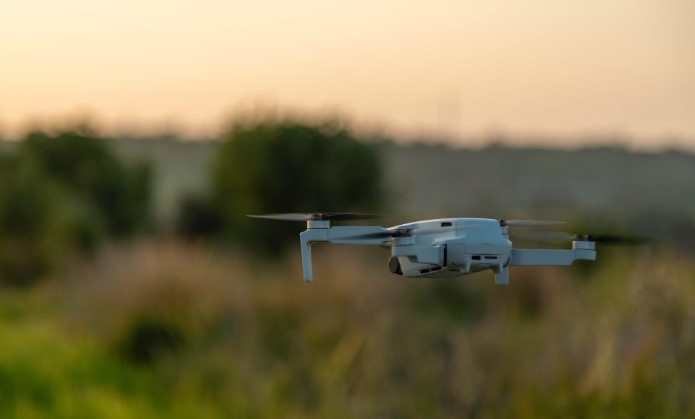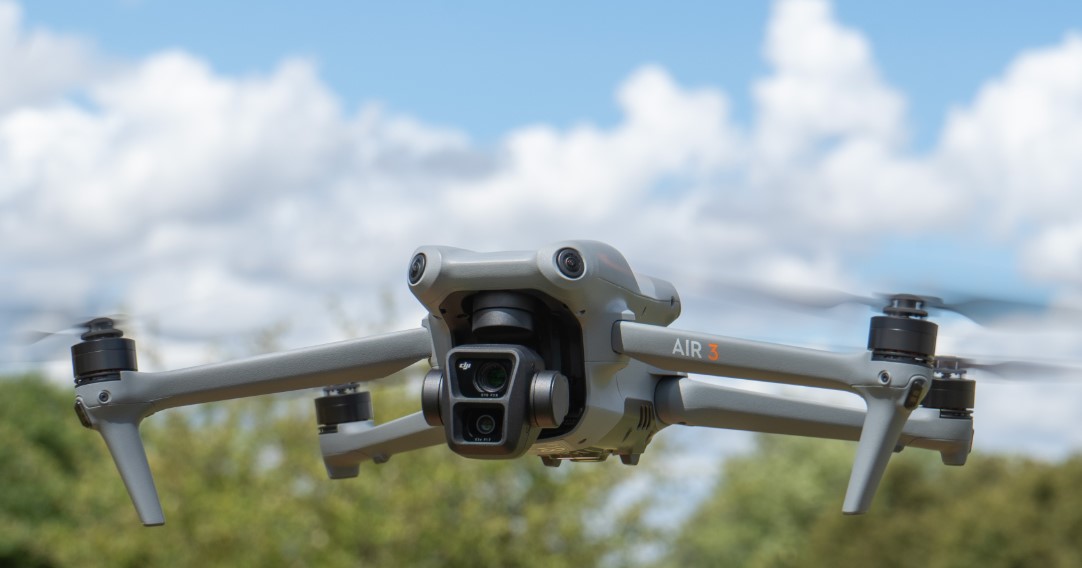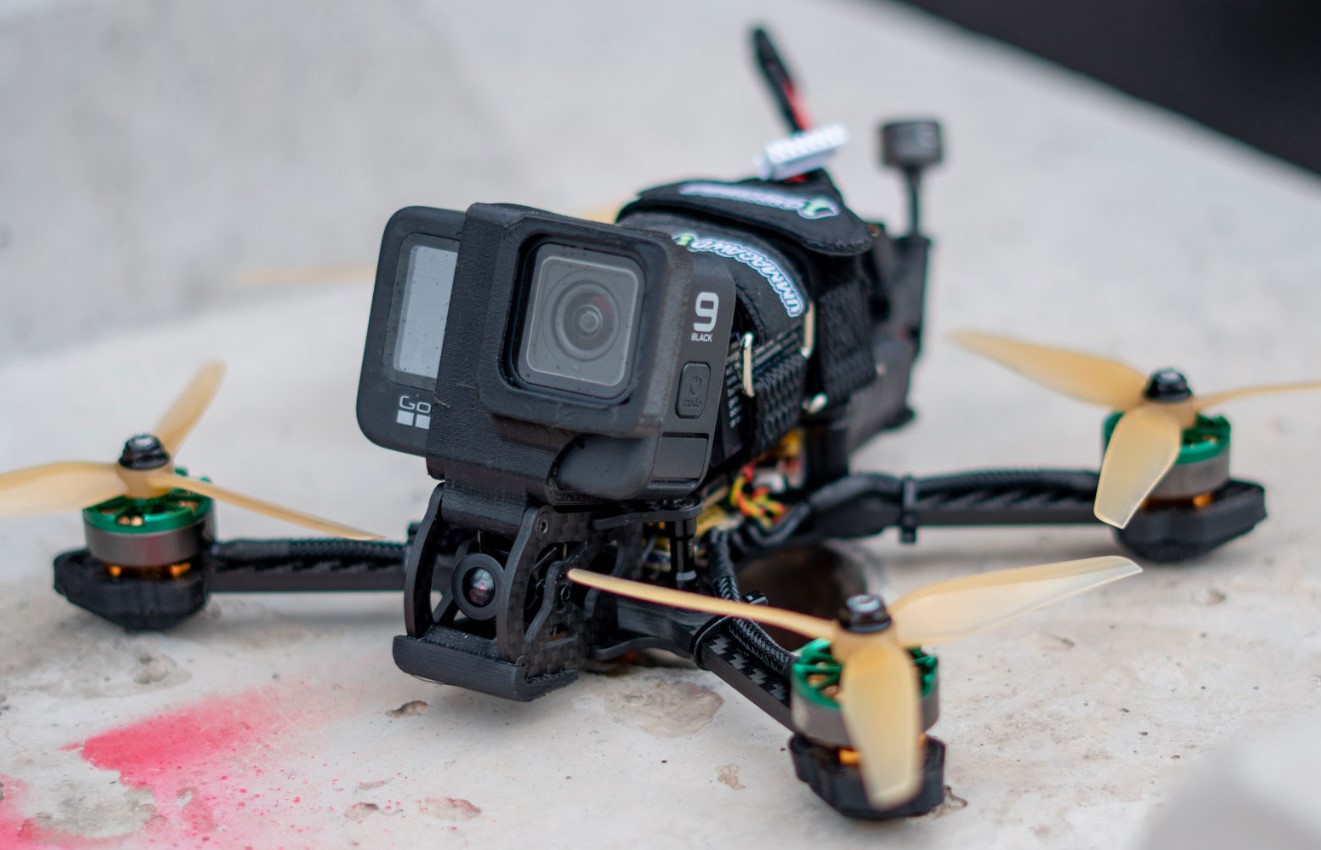How to Stop Drones from Flying Over Your House? Drones have become a popular piece of technology in recent years, offering exciting opportunities for photography, videography, delivery services, and recreational activities. However, with their increasing prevalence, they have also raised concerns about privacy and security. If drones are flying over your house, it can feel intrusive, unsettling, or even dangerous. Understanding how to stop drones from flying over your property is essential to protect your privacy and ensure your peace of mind. This article provides an in-depth guide on legal, technological, and preventative measures to address this issue. Follow Dronevoz.com !!!
Understanding Drone Laws and Regulations
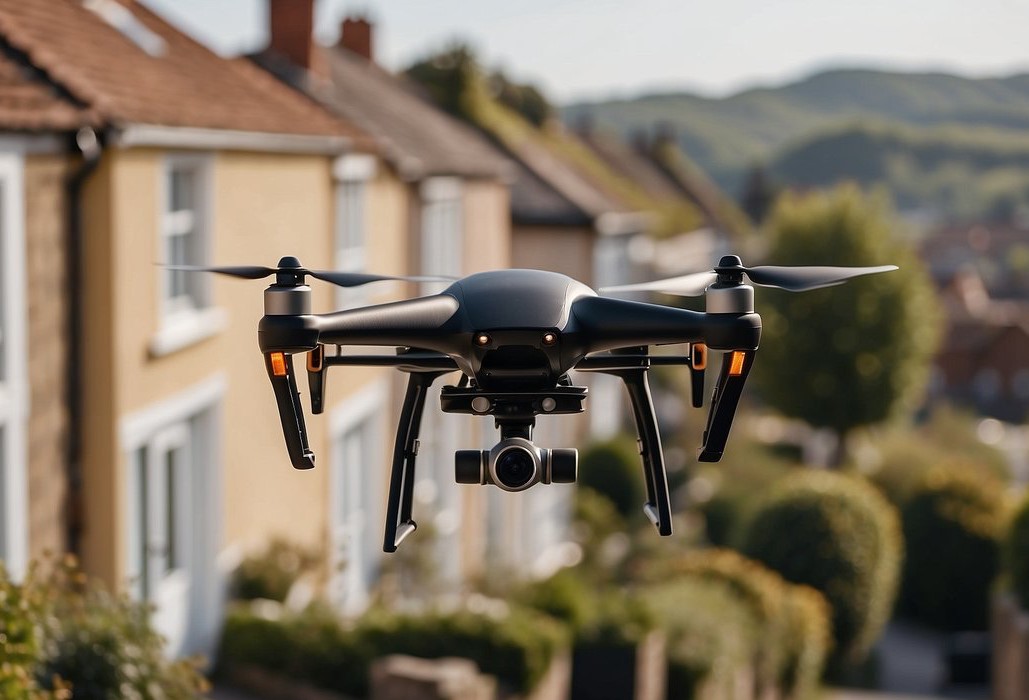
Before taking any action to stop drones from flying over your house, it is crucial to understand the laws governing drone usage. In many countries, drones are regulated by aviation authorities, such as the Federal Aviation Administration (FAA) in the United States or the Civil Aviation Authority (CAA) in the United Kingdom. These laws vary depending on where you live, but they typically cover the following aspects:
- Flight Altitude Restrictions: Many regulations prohibit drones from flying above a certain height (e.g., 400 feet in the U.S.) or below certain airspaces, such as private property.
- Line-of-Sight Operation: Drone operators are generally required to keep their drones within visual line-of-sight, which can limit their ability to fly over private properties.
- No-Fly Zones: Certain areas, such as airports, military bases, and national parks, are designated as no-fly zones.
- Privacy Laws: Many jurisdictions have laws that protect individuals from surveillance or recording without consent.
Start with Communication
Sometimes, drones flying over your house may be due to simple misunderstandings or unintentional actions. Before resorting to drastic measures, consider starting with open communication:
- Identify the Drone Operator: If possible, locate the person operating the drone. They might be nearby since most drones operate within a limited range.
- Politely Address Your Concerns: Explain why you find their drone activity intrusive and request that they avoid flying over your property.
- Community Engagement: If the drone activity is persistent or involves multiple operators, raise the issue with your neighborhood or local community group to address it collectively.
Know Your Rights as a Property Owner
While drone laws are primarily focused on airspace regulations, property owners also have rights to protect their privacy and security. In general, property owners have control over the airspace immediately above their property, although this may vary by jurisdiction. This concept, known as “aerial trespassing,” allows homeowners to take action if a drone repeatedly invades their personal space. Consulting a legal professional can help clarify your specific rights.
>>> Read: How to Spot a Police Drone at Night?
Use Technology to Detect Drones
If drones are flying over your house frequently and you are unable to identify the operator, consider investing in drone detection technology. These tools can help you monitor drone activity and gather evidence if needed. Common technologies include:
- Radar Systems: These devices use radio waves to detect drones in the airspace around your property.
- Acoustic Sensors: These sensors identify drones by detecting the unique sounds of their motors.
- Mobile Apps: Several apps can track drones using their registered flight data, giving you a better understanding of where they are coming from.
Drone detection systems can be especially useful if you need to document unauthorized drone activity for legal purposes.
Passive Preventative Measures
There are several non-confrontational ways to discourage drones from flying over your house. These methods do not involve physical interference but make your property less appealing for drone operators:
- Install Privacy Fences or Screens: High fences or outdoor screens can obstruct a drone’s view of your property, reducing the temptation for operators to fly overhead.
- Plant Trees or Tall Shrubs: Landscaping with tall trees or dense shrubbery can act as a natural barrier, providing privacy from aerial surveillance.
- Use Anti-Drone Lighting: Devices like floodlights or laser pointers can deter drones by interfering with their cameras or making it difficult for operators to see your property.
Anti-Drone Technology
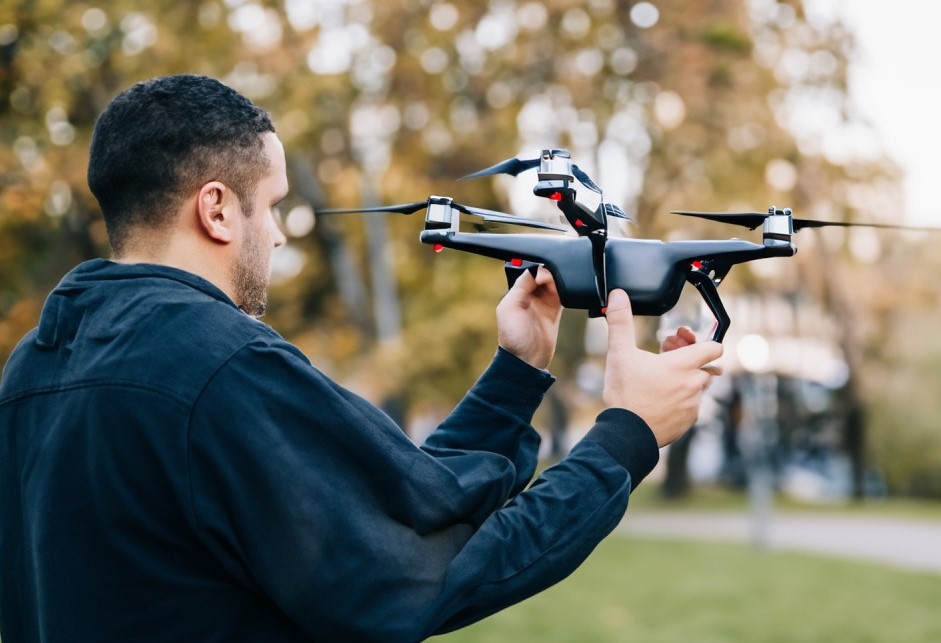
For homeowners looking for more active measures, anti-drone technology offers innovative solutions to prevent drones from intruding on their airspace. These tools are becoming increasingly popular as drone-related privacy concerns grow. Examples include:
- Drone Jammers: These devices disrupt the communication between a drone and its operator, causing the drone to lose control and land or return to its starting point. However, drone jammers are often illegal in many countries due to their potential interference with other communication systems.
- Net Guns: These handheld devices shoot a net to capture drones mid-air, effectively removing them from your property.
- Anti-Drone Drones: Some companies offer drones specifically designed to intercept and disable unauthorized drones.
Before using any anti-drone technology, ensure that it complies with local laws to avoid potential legal repercussions.
>>> Read More: Can You Fly Drones Over Private Property?
Report Unauthorized Drone Activity
If you suspect that a drone is being used for malicious purposes, such as spying, harassment, or property damage, report the activity to the relevant authorities. Provide as much information as possible, including:
- A description of the drone and its flight patterns.
- Evidence such as photos or videos of the drone.
- Any interactions you’ve had with the drone operator.
Local law enforcement or aviation authorities can investigate the situation and take appropriate action if necessary.
Advocate for Stronger Drone Regulations
In addition to protecting your own property, consider advocating for stricter drone regulations in your area. You can:
- Contact Local Representatives: Share your concerns with lawmakers and request that they address drone-related privacy issues.
- Support Legislation: Back proposals that aim to strengthen privacy protections and limit unauthorized drone usage.
- Join Advocacy Groups: Collaborate with organizations working to promote responsible drone usage and protect privacy rights.
Educate Yourself About Drone Technology
Understanding how drones work can empower you to take more effective measures to stop them from flying over your house. Learn about:
- The typical range and capabilities of consumer drones.
- How drones are controlled and monitored by their operators.
- The features of modern drones, such as cameras, GPS, and obstacle avoidance systems.
This knowledge can help you identify vulnerabilities and choose the best strategies to protect your property.
When All Else Fails, Seek Legal Remedies
If drone activity persists despite your efforts, legal action may be necessary. A lawyer specializing in privacy or property law can help you:
- File a complaint for aerial trespassing or nuisance.
- Seek a restraining order against persistent drone operators.
- Pursue damages if the drone activity has caused harm to your property or well-being.
Documenting drone activity with videos, photos, and written records will strengthen your case in court.
Conclusion
Drones offer incredible possibilities, but they also raise legitimate concerns about privacy and security. If you are dealing with drones flying over your house, it is essential to take a measured approach that combines understanding the law, using technology, and implementing preventative measures. Whether it’s communicating with drone operators, investing in detection tools, or advocating for stronger regulations, there are numerous ways to protect your property and maintain your peace of mind. By taking the steps outlined in this guide, you can regain control over your airspace and ensure that your home remains a safe and private sanctuary.
